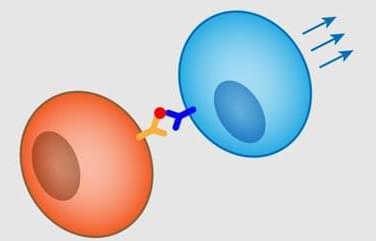A study of the mechanical forces in certain immune cells may give new insights into how organisms deal with ever-evolving pathogens.
To fight disease, many organisms have an adaptive immune system, which learns the molecular shapes of foreign elements (antigens) and remembers them to mount a defense against future infections. In vertebrates, the learning stage involves a remarkable cycle of evolution within an individual animal—a cycle called affinity maturation, which involves a type of immune cell called a B cell (Fig. 1). In this process, B cells are selected to have receptors that bind strongly to specific antigens. However, if these cells become too specialized, they risk becoming unresponsive to slightly mutated pathogens. Fortunately, the immune system can limit affinity maturation to retain a range of specificities for target pathogens. Just how the immune system is able to do that is the subject of a fascinating new study by Hongda Jiang and Shenshen Wang from the University of California, Los Angeles [1].
